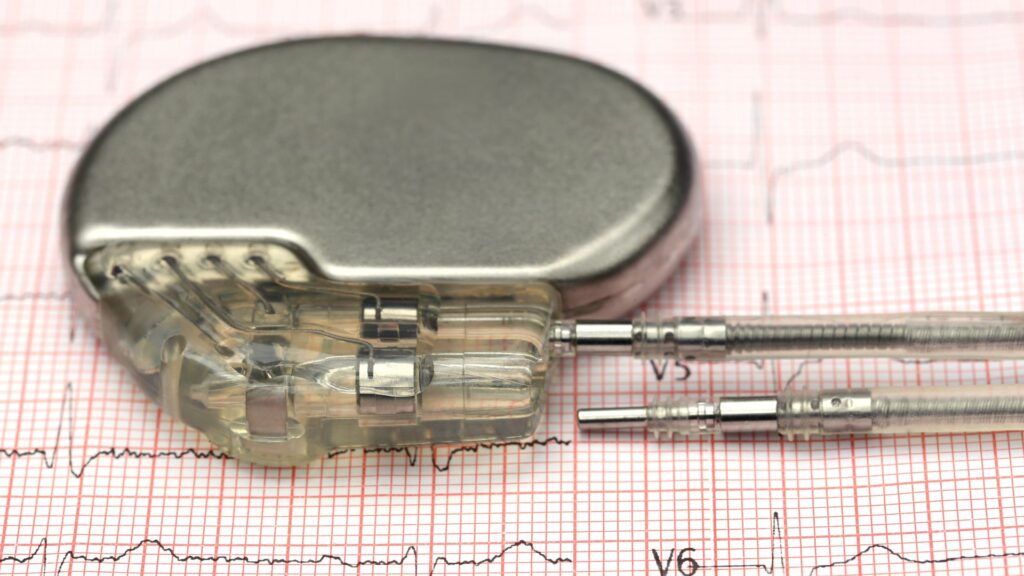Arrhythmia Decoded: Symptoms, Causes, and Treatment Options in Mumbai
Arrhythmia is a condition where the heart beats abnormally, which can cause discomfort, fatigue, and other serious health problems if left untreated. Understanding the symptoms, causes, and treatment options of arrhythmia can help you take control of your heart health.
What is Arrhythmia?
Arrhythmia refers to an Abnormal (regular/irregular) heart rhythm or beat, which can be caused by a variety of factors, including underlying heart conditions, lifestyle factors, and medications. In some cases, arrhythmia can cause your heart to beat too fast or too slow, which can have serious implications for your health.

Symptoms of Arrhythmia
Arrhythmia can cause a range of symptoms, depending on the type of arrhythmia you have. Common symptoms of arrhythmia include:
- Feeling one’s own heartbeat (i.e. palpitations)
- Dizziness
- Falling down or loss of consciousness/fainting (i.e. Syncope)
- Chest discomfort
- Breathing difficulty
- Neck pulsations
It’s important to note that some people with arrhythmia may not experience any symptoms at all. In these cases, arrhythmia may only be detected during a routine check-up or exam.
Causes of Arrhythmia
There are many factors that can contribute to the development of arrhythmia, including:
- Heart disease
- High blood pressure
- Obesity
- Alcohol and drug use
- Certain medications
- Family history of heart conditions
- Thyroid problems
- Sleep apnea
It’s important to discuss your risk factors for arrhythmia with your doctor to determine the best course of action to prevent or manage the condition.
Many of the cases the arrhythmia can be idiopathic i.e. without any apparent cause. Some of these cases need a specialist evaluation with a cardiac electrophysiologist to look for problems from birth or related to genes (congenital or hereditary).
Types of Arrhythmia
There are many different types of arrhythmia, each with its own specific symptoms and causes. Some common types of arrhythmia include:
- Low heartbeats (i.e. bradyarrhythmia)
- Heart block
- Sinus node dysfunction like sick sinus syndrome
- Ectopics
- High heartbeats (i.e. tachyarrhythmia)
- Supraventricular tachycardia like atrioventricular nodal or atrioventricular tachycardia (AVNRT/AVRT)
- Atrial fibrillation
- Atrial flutter
- Ventricular ectopics
- Ventricular Tachycardia
It’s important to understand the type of arrhythmia you have, as this will determine the best course of treatment for your specific needs.

Arrhythmia Treatment Options in Mumbai
The treatment options for arrhythmia will depend on the type of arrhythmia you have, as well as your overall health and medical history. Some common treatments for arrhythmia include:
- Medications
- Heart rate control medications
- Heart rhythm control medications
- Interventions
- Machine/ device implantation
- Pacemaker
- Implantable-cardioverter defibrillator (ICD)
- Cardiac Resynchronization therapy (CRT)
- Electrophysiological Study and ablation
It’s important to discuss the best treatment options for your arrhythmia with your doctor, as well as any potential risks or side effects associated with each treatment.
Conclusion
Arrhythmia can be a serious condition, but with proper diagnosis and treatment, you can take control of your heart health and enjoy a healthy, active life. Some of these arrhythmias can be permanently treated with device implantation or electrophysiological study and ablation. If you suspect you may have an arrhythmia, it’s important to speak with your doctor as soon as possible to determine the best course of action for your specific needs.